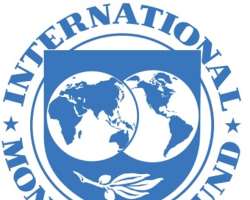IMF Concludes Article IV Mission to Guinea-Bissau

BISSAU, Guinea Bissau, May 10, 2013/African Press Organization (APO)/ -- An International Monetary Fund (IMF) mission led by Mr. Mauricio Villafuerte visited Guinea-Bissau during April 29 to May 9, 2013 to conduct its yearly review of the country's economy in the context of the IMF's Article IV consultation . The mission met with the interim government's authorities, including President Manuel Serifo Nhamadjo, Prime Minister Rui Barros, Minister of Finance Abubacar Dahaba and Minister of Economy Jose Biai. The mission also met with National Director of the Banque Centrale des Etats de l'Afrique de l'Ouest (BCEAO) João Fadia, private sector representatives, and development partners.
At the conclusion of the mission, Mr. Villafuerte issued the following statement.
“Economic growth is projected to rebound in 2013 from a very difficult situation in 2012. marked by a sharp drop in cashew nut export volumes and prices, and a fall in development partners' support. A recovery in cashew exports and continued budget support from regional partners should help real gross domestic product (GDP) increase by about 3½ percent in 2013. However, a delay in the cashew export campaign associated with some financing constraints poses a downside risk. Inflation is projected to remain subdued at low single digits, in line with the West African Economic and Monetary Union's convergence norm. The current account deficit is projected to fall due to an increase in cashew export earnings.
“The low levels of projected revenue and grants, together with limited financing options, imply the need for a tight expenditure envelope and strict fiscal controls to avoid domestic arrears while protecting social and priority spending. In this regard, the mission welcomes the main parameters under the draft 2013 budget and urges its rapid legislative approval and rapid implementation of revenue measures envisaged in the budget.
“Medium-term growth prospects critically depend on a stabilization of the political environment and increased support by traditional development partners. The absence of those conditions would complicate the government's ability to meet recurrent expenditures and to tackle the country's large infrastructure gaps. The creation of fiscal space hinges on policy and institutional reforms aimed in particular at increasing the low levels of tax revenue collection. Prudent borrowing and strengthened debt management will be crucial to maintaining medium-term fiscal sustainability. An enabling environment for private sector-led growth also requires the removal of significant obstacles to doing business and strategies to deepen the financial sector and the population's access to financial services.
“The IMF stands ready to work with Guinea-Bissau to address these challenges, including through technical assistance. Upon its return to Washington, the mission will prepare a staff report that is scheduled to be discussed by the IMF Executive Board in early June.
“The mission would like to thank the authorities for their warm welcome, excellent support, and open and fruitful discussions.”
